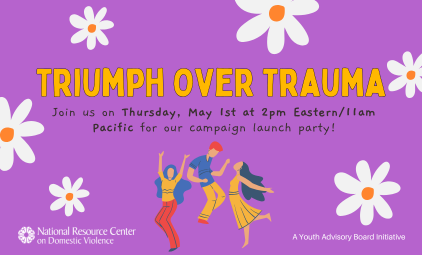The National Center on Domestic Violence, Trauma & Mental Health (NCDVTMH) is engaged in efforts to identify, assess, and share information on evidence-based and promising trauma-informed practices relevant to survivors of domestic and sexual violence. As part of these efforts, NCDVTMH conducted interviews with 45 programs or initiatives identified by their peers as engaged in innovative trauma-informed work with survivors of violence and their children. Thirty of the interviews were conducted with domestic and sexual violence advocacy programs. In addition, 15 interviews were completed with programs providing trauma-informed or trauma-specific services for refugees and survivors of torture, as information gathered from these interviews may be relevant for domestic and sexual violence programs.
The interviews were designed to gather comprehensive information about how programs are currently conceptualizing trauma-informed and trauma-specific work and how this translates into enhanced or improved services for survivors of domestic and sexual violence. The interviews also identified aspects of trauma-informed services that are especially meaningful to survivors and ways that programs are measuring outcomes and evaluating the impact of their work. We were also particularly interested in culturally specific approaches to trauma and healing, including collective approaches, community-based practices, and those that can be offered by advocates and/or by trusted community members. Taken together, the information gathered from these interviews provides valuable insights on myriad ways to support survivors of domestic and sexual violence who may have experienced multiple traumatic experiences over the course of their lives.
The key themes that emerged from these interviews are summarized within this report. This project is part of a larger effort to build an evidence base for trauma-informed advocacy services and to expand our notions of healing, resilience, and recovery in the face of ongoing domestic violence and other trauma.














